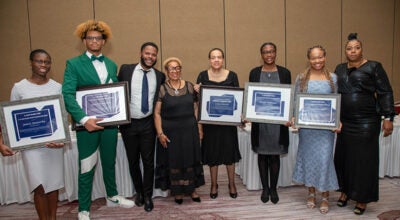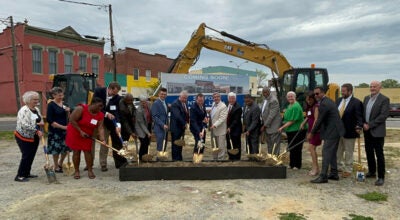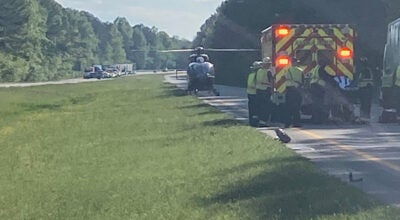Legislators, council talk
Published 8:06 pm Monday, November 24, 2014
Anything that costs money will be a hard sell in Richmond this year, Suffolk’s legislators told its City Council Thursday night.
“I think it’s going to be a financially challenging year,” said Delegate Matthew James, (D-80th). “If you can’t make it revenue-neutral, it’s going to be really hard.”
Three of the city’s four delegates met with City Council at the First Lady for the annual legislative dinner. The four senators were unable to come because of a committee meeting, but Tommy Norment (R-3rd) and John Cosgrove (R-14th) sent legislative aides.
Delegate Chris Jones (R-76th) also warned that requests involving money won’t be easy, noting that legislators just met last week to cut billions from the biennial budget.
“It’s going to be a very difficult session,” he said.
Mayor Linda T. Johnson said she understood the difficulties the legislators face.
“We understand where you all are as well,” she said.
Rob Catron, the city’s legislative consultant, presented a list of desires the city would like to have addressed in the 2015 General Assembly session.
Only a handful promise to be completely revenue-neutral, including a couple of simple changes to the city charter to reflect the state code, in one case, and the fact that the School Board is currently elected rather than appointed, in the other case.
Much of the rest of the list features issues that have been raised in past years, including the city’s desire to change the criteria for an enterprise zone.
The state allows the creation of enterprise zones to give companies incentives for creating jobs in depressed areas. But a locality has to qualify based on factors such as the number of children qualifying for free or reduced lunch at school.
The city no longer qualifies based on the demographics of the full city, but some areas are still fairly depressed.
“When you compete against 30 other localities, it’s just impossible to get a high enough score,” Catron said.
The city wants to change the criteria to use census tracts rather than the entire city, but localities that still have enterprise zones are pushing back.
“If you were to drive down East Washington Street, you would see a fairly economically depressed area that could benefit from an enterprise zone,” Catron said.
The legislators and council members also talked about the Commonwealth Rail Line Safety Relocation, a project that aims to move the 12 miles of Commonwealth Railway line in the city to a safer route that has less effect on residents, businesses and traffic patterns.
A study has been done, but more is required.
“It’s just not good quality of life,” Catron said.
For the Western Tidewater Regional Jail, the city wants an exemption from the state taking part of the jail’s per diem it gets for holding federal prisoners. The state takes the money from all jails in the state because it builds most jails, but the WTRJ was built with local money.
“We’re getting hammered on medical expenses,” Councilman Mike Duman said of the jail, where he is on the board. “It’s really important for us to be able to drive every dollar we can.”
Regional issues such as transportation also were discussed. Delegate James noted that the Port of Virginia’s competitors are capitalizing on the region’s transportation problems.
“’Yeah, they can get it there, but they can’t get it out of Hampton Roads’” is the competitors’ response to Virginia’s deep-water East Coast monopoly, James said.






